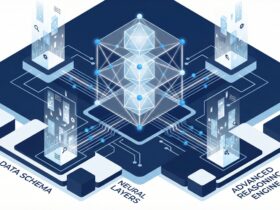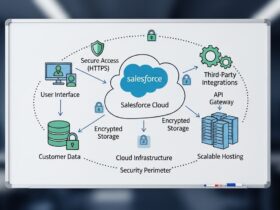What is Vlocity OmniOut and why should you care?
If you’re working in Salesforce Industries, you’ve probably heard of Vlocity OmniOut. The short answer? It’s the outbound integration tool we use to push data, events, or commands from the Salesforce runtime out to external systems. Think of it as the bridge between your fancy UI and the messy back-office systems that actually run the business.
I’ve seen plenty of teams focus entirely on the look and feel of their OmniScripts while forgetting how that data actually leaves the platform. Vlocity OmniOut gives you a secure, configurable way to hit REST or SOAP endpoints without writing a ton of custom Apex. Whether you’re doing things synchronously or in the background, this is the tool for the job.
How Vlocity OmniOut works in the real world
So how does this actually look in a project? Usually, you’re not just firing off a raw request. You’re using Integration Procedures (IPs) to gather data, and then calling an HTTP Action to send it out. It’s much cleaner than trying to manage callouts directly from a client-side script.
Here’s the thing: most enterprise integrations aren’t simple. You have to worry about OAuth, retries, and what happens when the target system goes down. Vlocity OmniOut handles these patterns through its integration with DataRaptors for mapping and IPs for the logic. If you’re deciding between SOAP vs REST for your outbound calls, OmniOut supports both comfortably.
Always use Integration Procedures for your outbound calls. It makes error handling a lot easier than trying to manage everything from the client-side script.
Common ways I’ve used it
- Sending order details to an external fulfillment system once a customer finishes their checkout.
- Hitting a third-party tax engine to get a real-time quote.
- Pushing customer profile updates to an on-premise ERP system.
- Firing off webhooks to notify partner systems about a new lead or subscription change.
Best practices for Vlocity OmniOut implementations
Look, anyone can set up a basic HTTP action, but doing it right for a production environment is different. One of the most overlooked features is idempotency. If a call fails and you retry it, you don’t want to create two orders in your billing system. Including a unique request ID in your payload is a simple move that saves a lot of headaches later.
And don’t even think about hardcoding credentials. Use Named Credentials in Salesforce. It’s more secure and makes moving between sandboxes a whole lot easier. If you’re building out complex flows, sticking to solid OmniScript naming conventions will also help you keep track of which IPs are handling your outbound traffic.
Interview tip: How to explain this to a colleague
If you get asked about this in an interview, don’t just say “it’s for integrations.” Start with the definition, then mention where it sits in the stack (IPs and DataRaptors). Mention a specific use case, like syncing an order to an external system, and finish with a tip about security or error handling. It shows you’ve actually been in the trenches and didn’t just read the documentation.
Key Takeaways
- Vlocity OmniOut is the primary way to send data from OmniStudio to external systems.
- It supports both synchronous and asynchronous modes for REST and SOAP.
- Always pair it with Integration Procedures for better control and error handling.
- Security matters – use Named Credentials and OAuth whenever possible.
- It’s essential for keeping downstream systems like billing and OMS in sync.
So, next time you’re building a flow that needs to talk to the outside world, reach for Vlocity OmniOut. It’s built for these industry-specific workloads and handles the heavy lifting of mapping and auth so you don’t have to. Just remember to keep your logic on the server side and log your requests so you can actually troubleshoot when things go sideways.










Leave a Reply